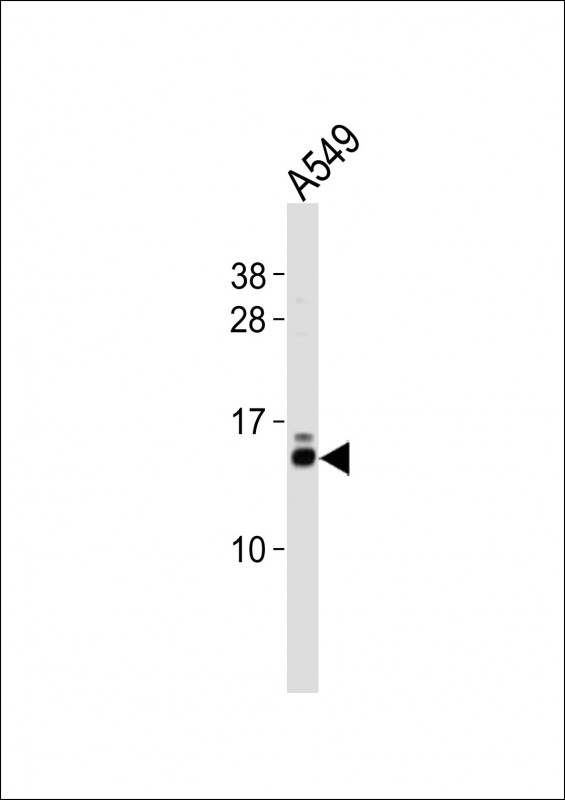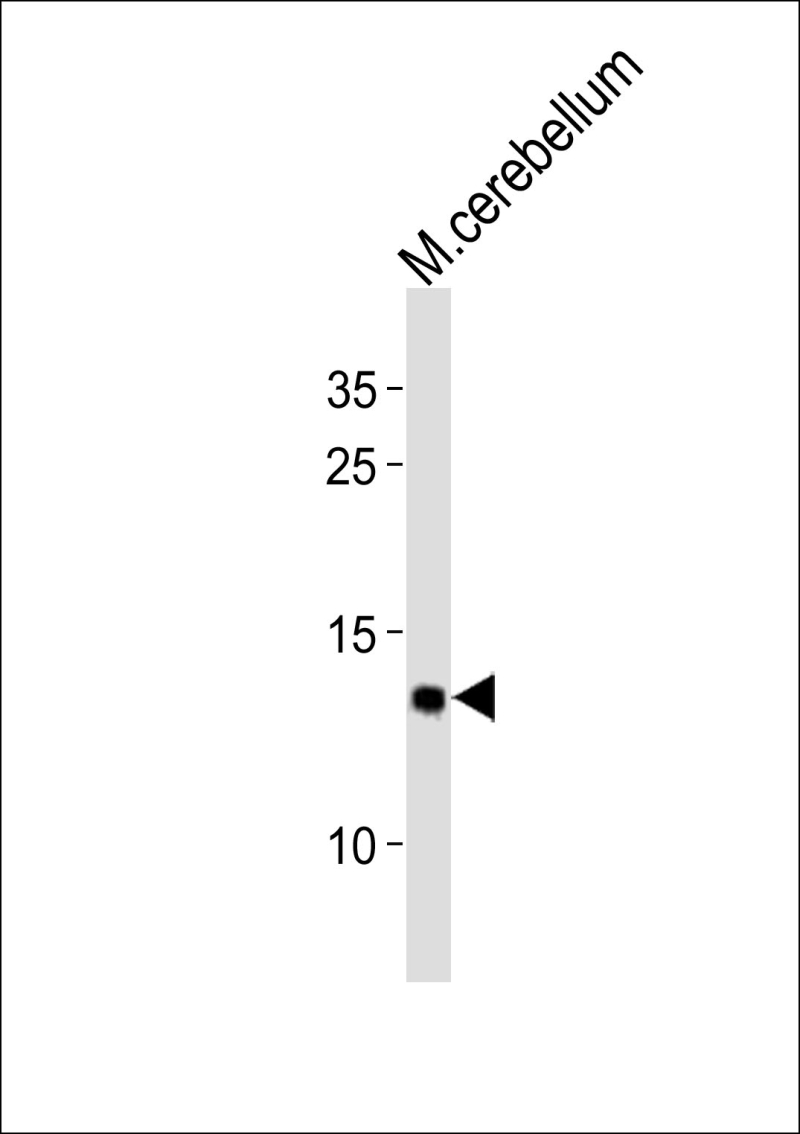

| WB | 1/500-1/2000 | Human,Mouse,Rat |
| IF | 咨询技术 | Human,Mouse,Rat |
| IHC | 咨询技术 | Human,Mouse,Rat |
| ICC | 技术咨询 | Human,Mouse,Rat |
| FCM | 咨询技术 | Human,Mouse,Rat |
| Elisa | 咨询技术 | Human,Mouse,Rat |
| Aliases | Eukaryotic translation initiation factor 1, eIF1, A121, Protein translation factor SUI1 homolog, Sui1iso1, EIF1, SUI1 |
| Entrez GeneID | 10209 |
| WB Predicted band size | 12.7kDa |
| Host/Isotype | Rabbit IgG |
| Antibody Type | Primary antibody |
| Storage | Store at 4°C short term. Aliquot and store at -20°C long term. Avoid freeze/thaw cycles. |
| Species Reactivity | Human, Mouse |
| Immunogen | This EIF1 antibody is generated from a rabbit immunized with a KLH conjugated synthetic peptide between 100-133 amino acids from the C-terminal region of human EIF1. |
+ +
以下是关于EIF1抗体的3篇参考文献示例(文献信息为模拟内容,实际文献需通过学术数据库验证):
1. **文献名称**: *EIF1 as a novel tumor suppressor in colorectal cancer*
**作者**: Smith A, et al.
**摘要**: 本研究利用EIF1抗体进行免疫组化分析,发现EIF1在结直肠癌组织中表达显著下调,其低表达与患者预后不良相关。实验表明EIF1通过调控特定mRNA翻译抑制肿瘤生长。
2. **文献名称**: *Characterization of EIF1 antibody specificity in translational initiation studies*
**作者**: Lee H, et al.
**摘要**: 该文献报道了一种高特异性兔源EIF1多克隆抗体的开发,通过Western blot和免疫沉淀验证其识别真核生物翻译起始复合物中的EIF1蛋白,为翻译机制研究提供工具。
3. **文献名称**: *EIF1 mutations disrupt ribosomal scanning and cause developmental disorders*
**作者**: Wang X, et al.
**摘要**: 通过患者样本的EIF1抗体免疫荧光分析,发现EIF1基因突变导致核糖体mRNA扫描功能异常,与神经发育障碍相关,揭示了EIF1在早期翻译质量控制中的关键作用。
建议通过PubMed或Google Scholar以关键词“EIF1 antibody”、“EIF1 function”检索最新文献以获取真实数据。
Eukaryotic Initiation Factor 1 (EIF1) is a conserved protein critical for the initiation phase of eukaryotic translation. It plays a regulatory role in the assembly of the 43S pre-initiation complex, ensuring the accuracy of start codon selection by stabilizing the binding of initiator tRNA to the 40S ribosomal subunit. Dysregulation of EIF1 has been linked to translational disorders, cancer progression, and developmental abnormalities. For instance, mutations in EIF1 are associated with congenital hypothyroidism and certain cancers, where aberrant translation initiation promotes oncogenic protein synthesis.
EIF1 antibodies are essential tools for investigating its expression, localization, and interactions in cellular contexts. These antibodies are widely used in techniques like Western blotting, immunoprecipitation, and immunofluorescence to study EIF1's role in physiological and pathological processes. Commercial EIF1 antibodies are typically raised against specific epitopes, often recombinant human or mouse EIF1 proteins, and validated for specificity across species. Recent studies highlight EIF1's potential as a biomarker in thyroid carcinomas and its involvement in stress-induced translational reprogramming. Research using EIF1 antibodies has also clarified its crosstalk with other initiation factors, such as EIF2 and EIF5. advancing understanding of translation regulation mechanisms in diseases like neurodegeneration and viral infection.
×